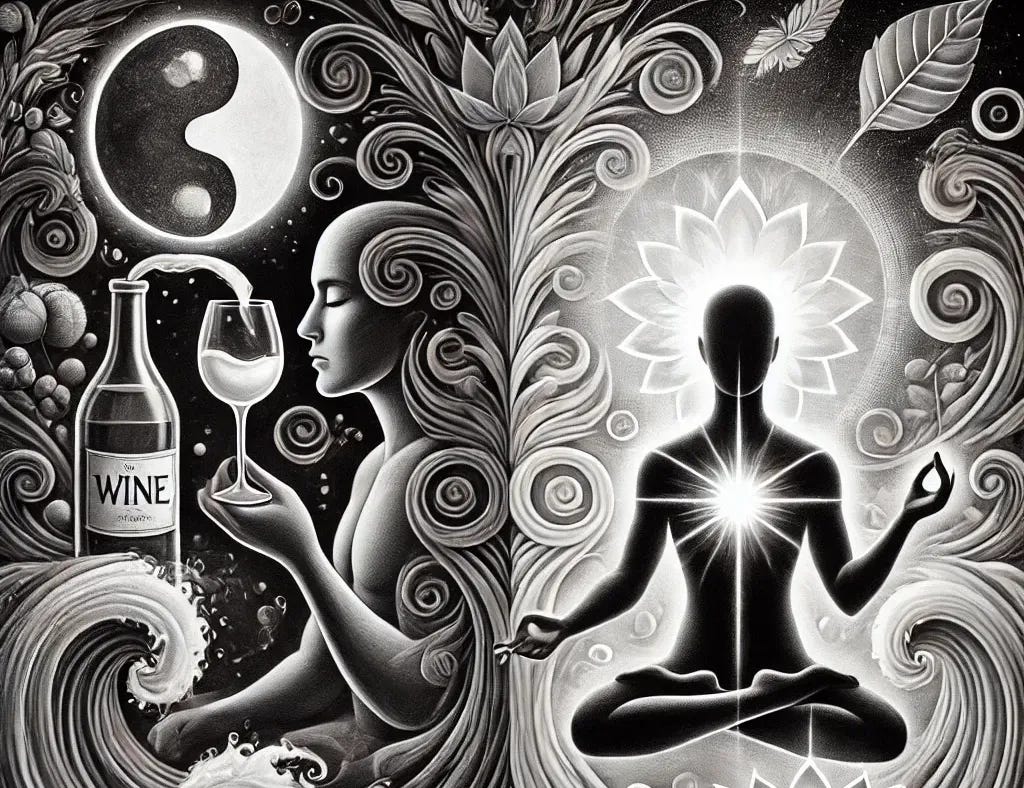I’ve always loved red wine—its rich flavors, complexity and the calming effect it has on me. For years, it was my routine to have a glass after work and a bit more on the weekends. It felt natural, something I never really questioned.
However, over time, I began to notice a decline in my sleep quality, and I often woke up feeling less than refreshed. On top of that, even a small amount of alcohol led me to overeat, usually opting for unhealthy foods. To balance it out, I found myself needing to exercise more just to keep my weight in check.
About a year ago, I began researching the effects of alcohol on both our physical and spiritual well-being. The more I read, the more surprised I became.
Latest health research
For years, we were led to believe that moderate alcohol consumption had health benefits and could slightly reduce mortality risk. While I was always skeptical, knowing alcohol is a cellular toxin, I never dwelled on it.
My research journey began with a podcast by Andrew Huberman, which I highly recommend. In this episode, he explores alcohol’s impact on the brain and body, covering metabolism, neurodegeneration, mood, cancer risk, genetics, hangovers, and informed health choices.
In addition, I red a number of studies on the subject concluding the following: Alcohol is a psychoactive substance with toxic and addictive properties, classified as a Group 1 carcinogen by the International Agency for Research on Cancer—placing it in the highest risk category alongside asbestos, radiation, and tobacco. It has been linked to at least seven types of cancer, including common forms such as bowel cancer and breast cancer. The cancer-causing effects of ethanol occur as it breaks down in the body, meaning that any alcoholic beverage, regardless of its price or quality, carries a potential risk.
I’m not even touching on alcohol’s addictive properties and the devastating impact it has on those who develop alcoholism and to their families.
Today, I firmly believe that alcohol is unhealthy and harmful to our bodies, even in small doses. While I may not like this truth, ignoring it would be self-deception.
The spiritual dimension
There is, of course, another dimension to drinking—its undeniable effect on our psyche and our soul. While it can be calming, it can also lead to aggression. Some claim it enhances creativity, while others disagree. For some, getting drunk occasionally feels like a necessary release.
But what do spiritual leaders say about alcohol’s impact?
Christianity has a relatively relaxed stance on alcohol, with the Catholic, Orthodox, Anglican and Lutheran churches generally not discouraging its consumption, as long as it aligns with societal norms. Pope Francis even described wine as a "gift from God" and "a true source of joy."
In Buddhism, alcohol is typically discouraged, especially for those on a serious spiritual path. The Fifth Precept advises against consuming intoxicants that cloud the mind and lead to heedlessness.
Hinduism does not universally ban alcohol, but traditional teachings warn against excessive drinking, associating it with moral and spiritual decline. Beliefs and practices vary widely across regions and castes.
Islam takes the strictest stance here. The Quran and Hadith explicitly forbid alcohol due to its intoxicating effects and the harm it can cause individuals and society.
While religious perspectives on alcohol differ, all seem to acknowledge its potential for harm. And if we are honest, attempting to meditate, do yoga or pray while intoxicated would not only feel strange but likely lead to poor results.
My personal view is that the deeper we commit to spiritual progress, the less we will feel inclined to drink. At some point, alcohol stops offering any meaningful benefit, and we begin to see it as an obstacle rather than a pleasure.
How has my drinking behavior evolved?
It is an illusion to believe that small amounts of alcohol are harmless or even beneficial. Alcohol is a cellular toxin and makes us more susceptible to negative spiritual influences. Simply put, drinking alcohol is not good—end of story. If we choose to drink, we should at least be honest with ourselves about it.
About a year ago, I decided to quit drinking almost entirely, only making occasional exceptions when meeting friends or going out. Since then, I’ve felt great physically, no longer overeat and have reduced my gym time to just three sessions per week while maintaining my fitness. Most importantly, my mental clarity and focus have significantly improved.
There are moments, especially during times of stress, when I feel tempted to have a drink to unwind. But I resist, and every time I do, I feel even better about my decision.
What do you think?
Want to engage?
Please subscribe and join my community, if you would like to engage in deeper discussions about this or any topic related to healing and awakening. My paid subscribers have access to personal coaching via Chat, and Gold Members get one hour of personal coaching via Teams/Zoom per year on top.
I also offer personalized coaching sessions on spiritual topics and powerful techniques that have helped me and many others before—let them be a resource for you as well on your path of healing and awakening. Just reach out!




